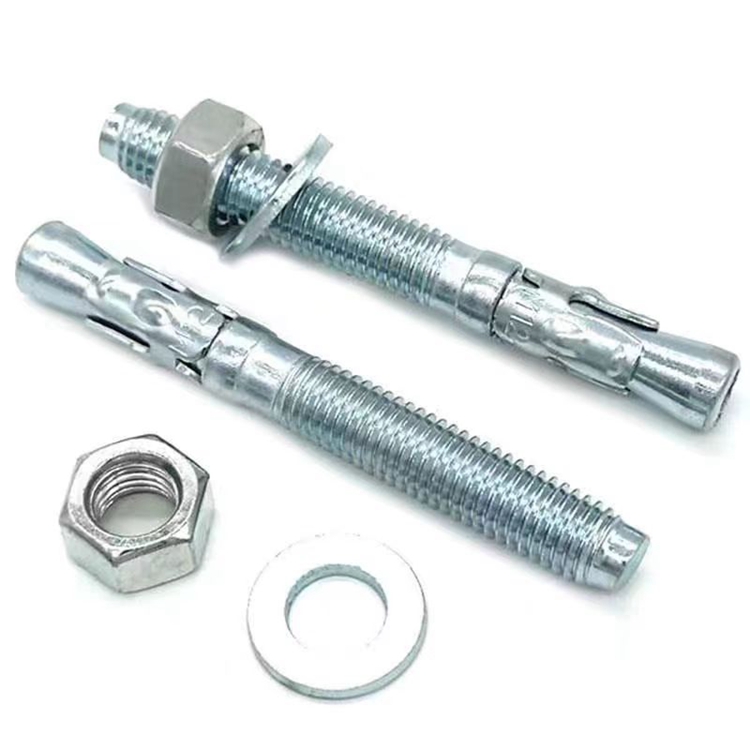Top Manufacturers in the Washer Industry for Quality and Innovation
ਨਵੰ. . 08, 2024 00:19 Back to list
Top Manufacturers in the Washer Industry for Quality and Innovation
The Evolution and Significance of Washer Manufacturers in the Industry
In the modern industrial landscape, the role of washer manufacturers cannot be understated. Washers, the small yet essential components used to distribute load and reduce friction between mechanical parts, play a crucial role in a myriad of applications ranging from automotive to aerospace, and even in everyday household items. This article will explore the evolution of washer manufacturing, the different types of washers available, their applications, and the significance of these manufacturers in today’s economy.
The Evolution of Washer Manufacturing
Historically, washers have been around for centuries, initially crafted from materials like wood and metal. As industries advanced, so too did the technology and materials involved in washer manufacturing. The introduction of synthetic materials in the mid-20th century marked a significant turning point; rubber, nylon, and other polymers provided enhanced durability and resistance to various environmental conditions.
In recent decades, advancements in production techniques, such as computer-aided design (CAD) and computer numerical control (CNC) machining, have revolutionized washer manufacturing. These technologies facilitate precision manufacturing, enabling the production of washers to exact specifications required for complex applications. Additionally, the rise of automation and robotics has led to increased efficiency, reducing labor costs and production time.
Types of Washers and Their Applications
Washers come in various shapes and sizes, each designed for specific functions. The most common types include flat washers, spring washers, locking washers, and spacer washers.
1. Flat Washers These are the most basic type used widely in construction and machinery to distribute the load of a fastener. They help to prevent damage to the surface being fastened and are critical in creating a stable support for bolts and screws.
2. Spring Washers Typically used in applications requiring a degree of elasticity, these washers help maintain tension and provide resistance to shock loads. They are commonly found in automotive and machinery applications where vibration is a concern.
washers manufacturers

3. Locking Washers These are designed to prevent loosening of fastening assemblies due to vibration. Locking washers are crucial in applications where safety and reliability are paramount, such as in aircraft and roller coasters.
4. Spacer Washers Used to create a specific distance between two components, spacer washers find their application in electronics, machinery, and plumbing.
The Impact of Washer Manufacturers on the Economy
Washer manufacturers not only play a vital role in the supply chain of numerous industries but also significantly contribute to the economy. By providing high-quality, durable washers, these manufacturers ensure that various mechanical systems operate efficiently, enhancing productivity across sectors.
Moreover, the washer manufacturing industry fosters innovation. As industries evolve and demand more specialized products, manufacturers continuously adapt by researching and developing new materials and designs. This innovation drives competition, supporting economic growth and employment in the manufacturing sector.
In addition, many washer manufacturers are focusing on sustainability by adopting eco-friendly practices. This includes utilizing recyclable materials and minimizing waste during the manufacturing process. As customers become more environmentally conscious, the importance of sustainable manufacturing practices has surged, further highlighting the evolving role of washer manufacturers.
Conclusion
In conclusion, washer manufacturers are an indispensable part of the industrial ecosystem, contributing to the efficiency and reliability of countless applications. As technology continues to advance, these manufacturers must adapt and innovate to meet the growing demands of the modern world. From historical advancements to contemporary sustainability efforts, the evolution of washer manufacturing reflects not only changes in technology but also broader economic trends. As industries pursue tighter tolerances and more reliable components, the future of washer manufacturers looks promising, ensuring they will remain at the forefront of industrial supply chains for years to come.
Latest news
-
Wire Bolts Company | Premium Industrial Fasteners
NewsAug.03,2025
-
Top Wire Bolts Suppliers | AI-Optimized Fast Delivery
NewsAug.02,2025
-
Top Metric Wood Screw Companies | Durable & Reliable
NewsAug.01,2025
-
Premium Lawn Mower Handle Bolts Supplier | Fast Delivery
NewsJul.31,2025
-
Premium Silver Screws Supplier | High-Conductivity Fasteners
NewsJul.31,2025
-
Silver Screws Supplier: High-Quality Fasteners for Various Industries
NewsJul.30,2025
